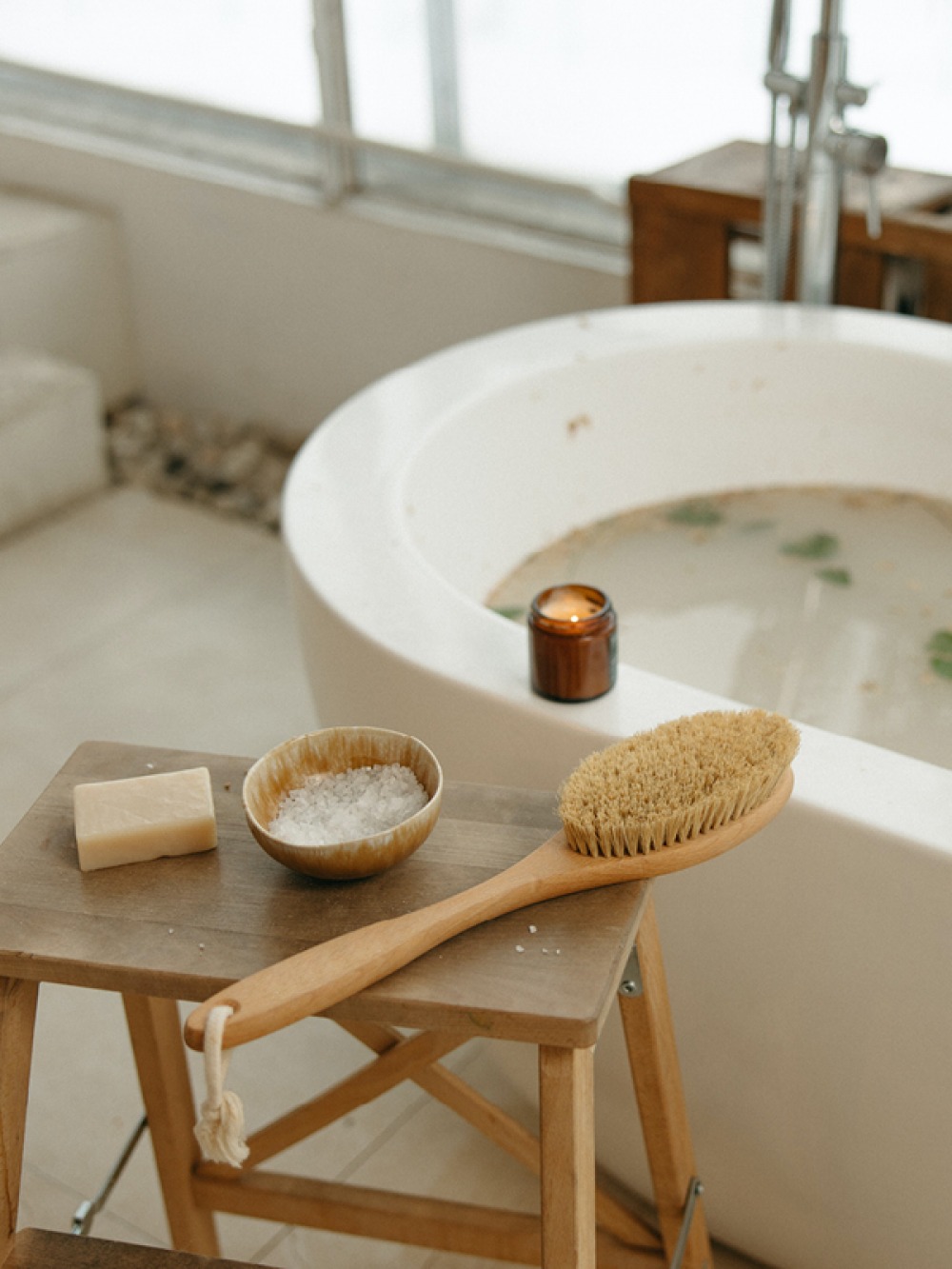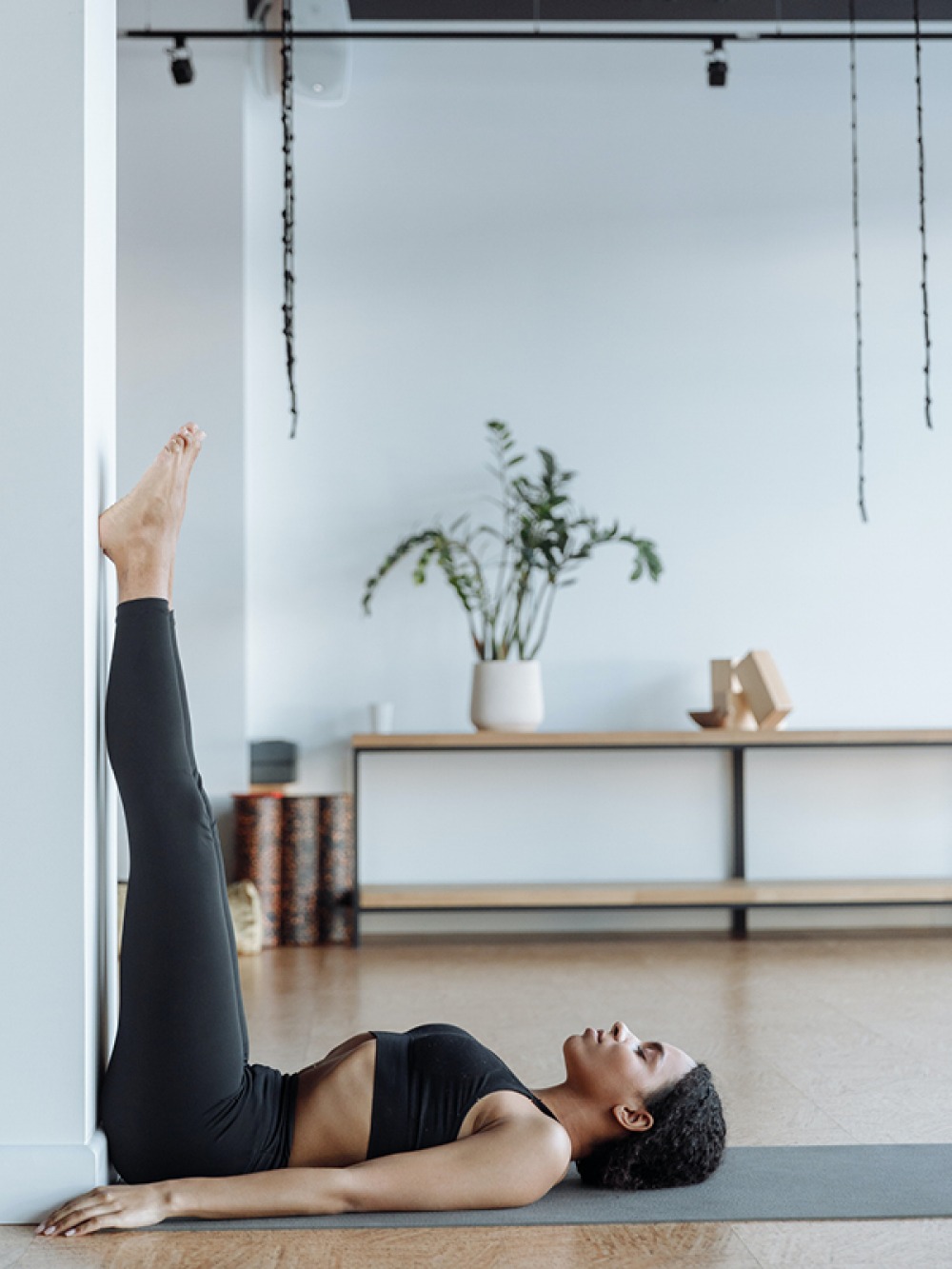Ways to Improve Your Sleep During Perimenopause

Welcome fellow travellers to this month’s column, where Living North’s Elizabeth Joseph once again takes a look at how we can best navigate the perimenopause
Most woman reach menopause around the age of 51 and perimenopause typically kicks in during your mid-forties. Of course every woman’s experience is unique, and there is no real typical pattern, as with any other life stage.
What seems different with this life stage, however, is that many of us are stumbling into it completely unaware. Totally clueless as to why on earth we seem suddenly plagued by a myriad of confusing symptoms. I had two years of unexplained joint and muscle pain, anxiety, brain fog and sleepless nights before my periods went bonkers, finally prompting me to start researching online.
‘Peri-what-now’ was the answer I found.
I had to find it for myself mind you as no one was chatting about it in my social circles. No older female friend warned me or offered up any advice.
I believe the taboo around perimenopause is starting to shift as more and more experts and celebrities are speaking up. I hope this leads to more and more women speaking up or even just speaking to each other. Feeling comfortable enough to chat to each other at the school gates, over coffee or at work about different symptoms and ways they may have found to deal with them. Hopefully, we will be the last generation to stumble in to the Hell Gorge that is perimenopause without a guidebook.
The one issue that comes up time and time again, with those willing to be open about their experience, is sleep. Or rather the lack of it. It seems like something of a design flaw that at the very time we need to be as robust as possible in order to deal with our fluctuating hormones, those very hormones start messing around with our sleep.
Progesterone and oestrogen help to regulate our sleep-wake cycle. They help us to fall asleep and stay asleep. Once they start yo-yoing all over the shop we can find ourselves struggling to fall asleep, struggling to stay asleep and (my personal favourite) twitching relentlessly throughout the night.
Sleeping has, without question, always been my favourite activity. I never begged to stay up late as a child and I have zero wish to stay up late as an adult. I cannot remember the last New Year I saw in and I even went home early on my own hen night! Without my eight solid hours of sleep I am not a pleasant person to be around. With anything less than seven hours of sleep I am rather monstrous to be around.
Luckily, I have never really struggled with sleep. Until now, that is. All of a sudden, in Hell Gorge, I find it difficult to fall asleep, am easily woken in the night and then seemingly unable to soothe myself back to sleep. I also, apparently, keep my long suffering husband awake half the night with my exuberant snoring and twitching around like a fish on land.
As those of you who have been in Hell Gorge with me for some time will know, I am presently navigating a natural path and trying out a range of approaches and products available out there, and some that are really ‘out there’, to combat my perimenopause symptoms. I will now gladly share a few that have worked well for me in my bid to get as many hours sleep each night as possible.

Magnesium is vital when it comes to sleep. Many women are unaware that they may be deficient in magnesium. We need magnesium for a whole host of reasons; for the perimenopausal woman it is invaluable. It can ease the majority of our symptoms linked to digestion, skin, mood, brain fog, pain and importantly here – sleep.
Magnesium helps to activate your parasympathetic nervous system, which allows the body to calm down and rest. Magnesium plays a crucial role in helping you to fall asleep at night and stay asleep. It has also been shown to calm restless leg syndrome.
I have been taking a magnesium supplement before bed for just over a year now and have really seen a difference – I am falling asleep faster, having better quality deep sleep and the twitching, whilst not completely gone, has definitely lessened.
It is, however, important to check what kind of magnesium you are taking. I started out with the standard magnesium oxide tablets. It would appear, however, that while excellent at keeping one ‘regular’, magnesium oxide does not aid sleep. I have since been advised to look for a supplement containing magnesium citrate and/or glycinate.
You can also introduce magnesium into your system by enjoying a relaxing soak in an Epsom salts bath or rubbing magnesium lotion or gel into the back of your neck, or your twitching legs, before sleep.
Magnesium should help to get you off to sleep and stay asleep. If you do however find yourself waking in the night – why not try adding a little mindfulness to the situation?
If you are anything like me, finding yourself suddenly awake at stupid o’clock will have you mentally effing and jeffing that’s it – you’re done for, you’ll never get back to sleep, it’s a nightmare etc. etc. Well, if you keep telling yourself you’ll never get back to (insert swear word here) sleep then you will indeed never get back to (insert swear word here) sleep.
Calm, peaceful rest counts. You will still be relaxing and replenishing your body. Even better, if you can calm your facial muscles, relax your shoulders and concentrate on your breathing, letting your thoughts float away like clouds, you will soon soothe yourself back to sleep. Don’t shake your head! Give it a try! Without the preliminary effing and jeffing!

‘The one issue that comes up time and time again, with those willing to be open about their experience, is sleep. Or rather the lack of it’
Viparata Karani is a yoga pose, which very simply involves lying down with your legs vertically up a wall. It calms your nervous system and helps to lower any feelings of stress or anxiety – especially useful if you get yourself wound up at the thought of a restless night. It eases tired legs and ankles and can help to ease headaches and sciatic pain. My husband finds it endlessly amusing that I chose to read for ten minutes before sleep with my legs up the wall. It may sound a bit ‘out there’ but give it a go. It really works for me.
My last suggestion for you has been an absolute game changer for me. If you share a bed and your nocturnal struggles are affecting your partner to the point you have considered separate beds, consider trying separate duvets first. My twitching, hot flushes and night sweats have had quite the impact on my long suffering husband. With separate duvets we can choose the best weight of duvet for each of us. I can wrap mine round me or hang my feet and bum out of it as I wish! Any twitching or fidgeting on my part doesn’t disturb my husband. A simple change but it has made a massive difference.
Please feel free to try some of these suggestions or to think what a load of old nonsense. But, please, do me one favour. Next time you hear a woman saying she is suddenly struggling with her sleep, or her memory, or her joints or that ‘she just doesn’t feel like herself anymore’. If you think it might help, could you please mention the ‘Peri-what-now’?
Thank you.
You can follow @elizabethjosephnavigating on Instagram.







